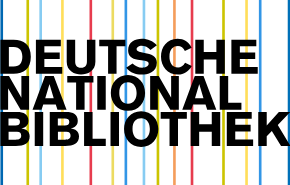IS ALTRUISM MORE IMPORTANT IN EDUCATION OR UPBRINGING?
DOI:
https://doi.org/10.55640/Keywords:
Altruism, education, upbringing, moral development, ethics, empathy, pedagogy, child psychology, emotional intelligence, social responsibility, prosocial behavior, family influence, school environment, collaborative learning, community service, character education, selflessness, moral reasoning, personal growth, ethical leadership.Abstract
Altruism, the selfless concern for the well-being of others, is a fundamental value in both education and upbringing. While education primarily focuses on intellectual and skill development, upbringing shapes a child's moral and ethical framework. This paper explores whether altruism is more crucial in education or upbringing, analyzing their respective roles in fostering selflessness, empathy, and social responsibility.[2] Research suggests that early childhood experiences significantly influence altruistic tendencies, making upbringing a vital foundation. However, schools provide structured opportunities for students to practice altruism through collaboration, community service, and ethical education. This study examines psychological, philosophical, and pedagogical perspectives on altruism, discussing its impact on personal and societal development. It also explores how parents and educators can work together to cultivate a culture of selflessness. The findings indicate that while upbringing lays the foundation for altruism, education refines and expands it through real-world applications. Ultimately, altruism should be deeply embedded in both spheres to create compassionate and responsible individuals.[1]
References
1.Vygotsky, L. S. (1978). Mind in Society: The Development of Higher Psychological Processes. Harvard University Press.
2.Piaget, J. (1932). The Moral Judgment of the Child. Free Press.
3.Gilligan, C. (1982). In a Different Voice: Psychological Theory and Women’s Development. Harvard University Press.
4.Kohlberg, L. (1984). The Psychology of Moral Development. Harper & Row.
5.Noddings, N. (2003). Caring: A Relational Approach to Ethics and Moral Education. University of California Press.
6.Batson, C. D. (2011). Altruism in Humans. Oxford University Press.
7.Wilson, D. S. (2015). Does Altruism Exist? Yale University Press.
8.Seligman, M. (2011). Flourish: A Visionary New Understanding of Happiness and Well-Being. Free Press.
9.Freire, P. (1970). Pedagogy of the Oppressed. Continuum.
10.Bandura, A. (1977). Social Learning Theory. Prentice Hall.
Downloads
Published
Issue
Section
License

This work is licensed under a Creative Commons Attribution 4.0 International License.
Authors retain the copyright of their manuscripts, and all Open Access articles are disseminated under the terms of the Creative Commons Attribution License 4.0 (CC-BY), which licenses unrestricted use, distribution, and reproduction in any medium, provided that the original work is appropriately cited. The use of general descriptive names, trade names, trademarks, and so forth in this publication, even if not specifically identified, does not imply that these names are not protected by the relevant laws and regulations.







